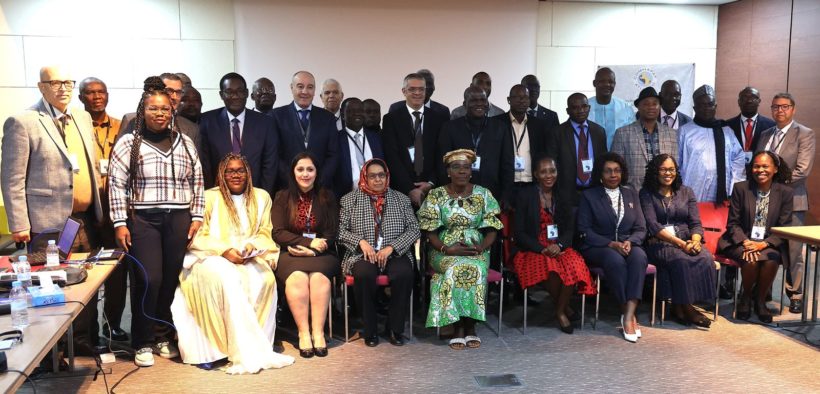COMHAFAT Conference to Combat Child Labor in Fishing Industry in Africa
Share

The city of Casablanca in Morocco is hosting a workshop organized by the Ministerial Conference on Fisheries Cooperation Among African States Bordering the Atlantic Ocean (ATLAFCO) starting from February 27, focusing on the theme of “Accelerating the Elimination of Child Labor in the Fishing Sector in Africa.”
“The main objective of this workshop is to bring together representatives from member countries, international and regional organizations, NGOs, civil society, as well as experts and resource persons to engage in rich and relevant discussions on strategies to combat child labor and promote decent work in supply chains, particularly in Africa,” stated Taoufik El Ktiri, appointed Executive Secretary of ATLAFCO, at the workshop’s opening.
“The protection of children’s rights has become an essential challenge,” he emphasized.
For ATLAFCO, it is crucial to address the root causes of child labor by strengthening governance mechanisms at various levels, including:
– Improving awareness activities and communication products for stakeholders in the fishing sector for enhanced governance.
– Providing learning opportunities and building the capacities of fishing sector actors in preventing child labor and promoting youth employment.
– Developing informational and guidance materials for fishing sector actors to reinforce best practices in combating child labor.
– Organizing regional consultations among agricultural sector actors on the issue of child labor in fishing.
– Creating knowledge products on specific themes related to child labor in the fishing sector.
By implementing these commitments, a greater number of actors in the fishing and aquaculture sector will be sensitized, informed, skilled, and determined to seize opportunities to contribute to reducing child labor in fishing.
The fishing sector represents a crucial economic pillar for many communities in Africa, providing vital food resources, income, and livelihoods. However, this economic dependence also exposes these communities to complex challenges, including children’s involvement in labor in this sector.
The reality of child labor in fishing highlights the challenges faced by these young individuals, exposed to harsh working conditions, health risks, and educational obstacles. These challenges underscore the crucial importance of protecting children’s fundamental rights and building a sustainable future for these communities.
Children’s participation in the fishing sector is often linked to challenging economic realities, with families dependent on fishing income to meet their needs. However, this dependency can lead to the necessity for children to contribute to work, creating a dilemma between economic necessity and child protection.
To break this cycle, holistic approaches are necessary, including accessible education programs, community awareness, and the creation of alternative economic opportunities. By adopting a balanced approach, it is possible to sever the link between poverty and child labor in fishing, paving the way for a more promising future for these communities.
The consequences of child labor in fishing are manifold, compromising children’s health, education, and development, and contributing to the perpetuation of the cycle of poverty on a societal scale. To address this complex issue, integrated and coherent measures are indispensable, targeting the deep-rooted issues to build a better future for the children and communities concerned.

















